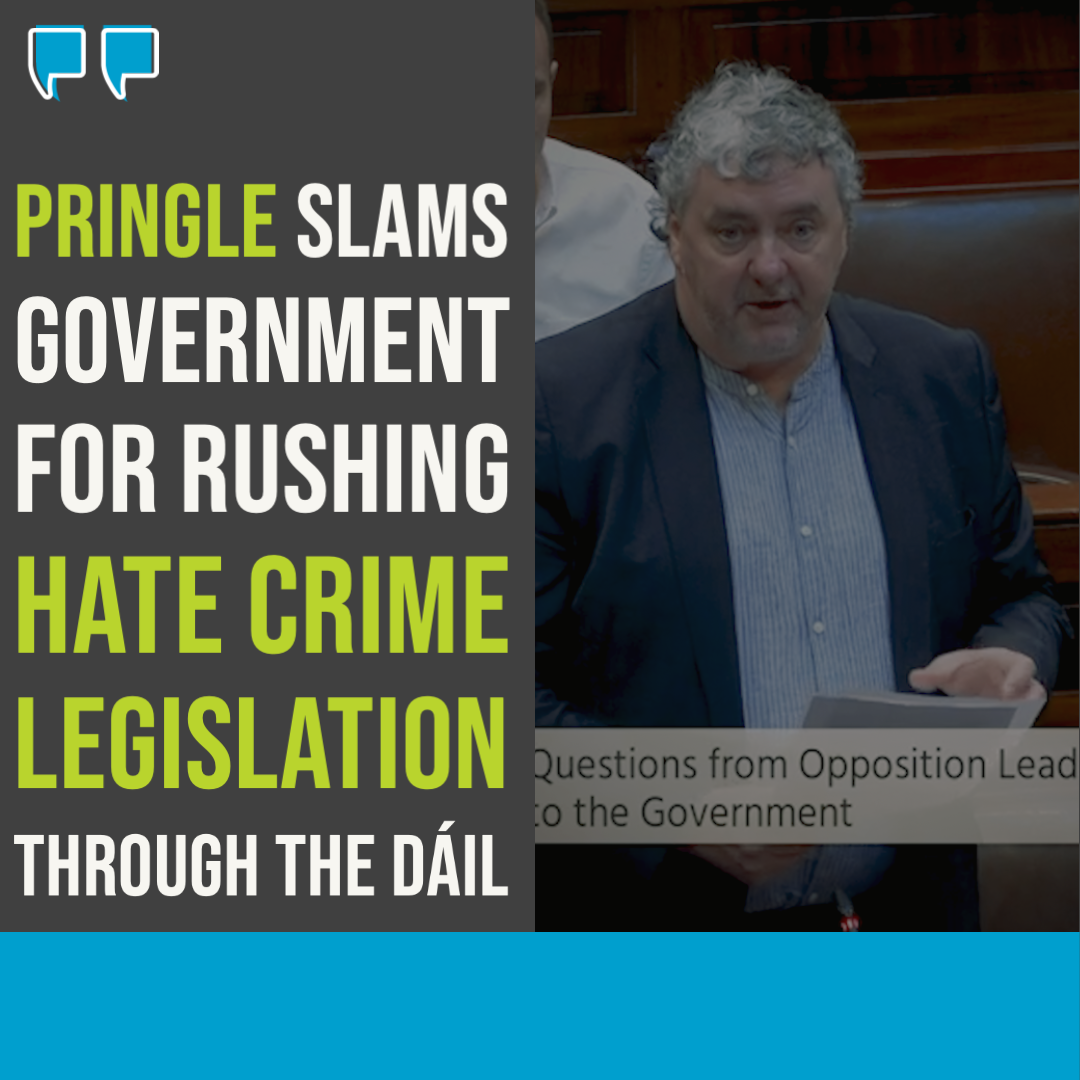- Pringle: We need a policy that recognises the importance of inshore fishing
- Pringle: Disabled people and carers face crisis of State neglect
- Pringle: Failed FF/FG housing policies forcing people to put their lives on hold
- Pringle welcomes Donegal council motion on Occupied Territories Bill: ‘We cannot stand by in the face of genocide’
Pringle slams Government for rushing hate crime legislation through the Dáil
- Updated: 16th November 2022

Independent TD for Donegal, Thomas Pringle, has criticised Government for rushing important hate crime legislation through the Dáil.
Addressing the Dáil on Thursday, Deputy Pringle said: “For it to be rushed through all stages here in the House is wrong. I agree with submissions that have been made from the Irish Council for Civil Liberties, where they’re concerned as well in relation to the proposed steamrolling of this legislation through the legislative process. And it calls on Government to ensure there is sufficient time for a meaningful democratic debate to take place.
“How do we have sufficient time for meaningful democratic debate when the deadline has already passed for committee stage amendments? The committee stage is taking place next Tuesday. I think that’s wrong,” he said. The deputy was speaking on the Criminal Justice (Incitement to Violence or Hatred and Hate Offences) Bill 2022.
Deputy Pringle said it’s clear that this is a complicated issue for legislation to deal with and referred to the extensive consultation procedure the minister outlined in her remarks on the bill.
Deputy Pringle said: “Yet we come into the House here now and we see that the second stage is being taken today, Thursday, and the deadline for amendments for committee stage has actually passed, as I understand it, and that committee stage is going to be taken next Tuesday.”
He said: “So you’d wonder why there’s such a rush on now to get it through the House here when it’s taken such a long time, and rightly so, to have that consultation in advance of this.”
The deputy said: “If this takes another six months, so be it. It’s taken quite an extensive period up to now, and that’s the way it should be.”
Deputy Pringle said he believed hate crime legislation is necessary, and cited statements from the Secretary General of the United Nations and from the European Commission on the dangers of hate speech and hate crime.
“I do believe that we need to legislate to ensure that minority groups are protected and that there isn’t a targeting of people because they are members of those groups,” the deputy said. However, he said, “I don’t know whether this legislation will achieve that or not, and that’s the danger.”
The deputy said there are a number of concerns in relation to this bill. For example, he said, the bill does not define hatred. The deputy noted that Ireland is a member of the Council of Europe and the European Commission Against Racism and Intolerance, which have definitions that should be taken on board.
Deputy Pringle said: “There are definitions there that could be used. And I think we should have been using all those bodies that are there, and that we are members of, to actually help formulate this process.”
He said the bill also holds different groups to different standards, with a more lax standard for politicians. The deputy said: “We should hold politicians up to a higher standard than the public. Politicians have more responsibility because of the fact that we can stand up in this House and it is broadcast all over the country and on the internet.”
He said he was concerned whether the bill would provide the protections needed.
The deputy said: “We should be ensuring that we get a workable piece of legislation out there rather than just a piece of legislation that is going to sit in the statute books and probably not be used.”



